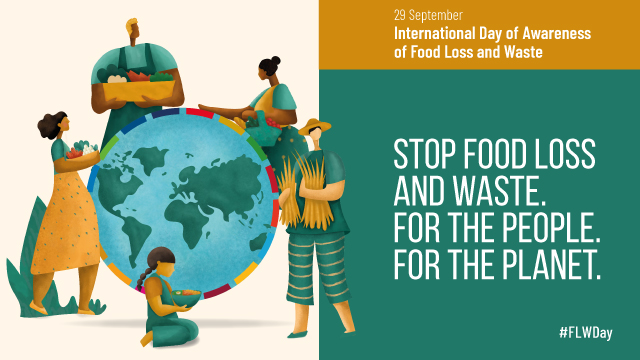In the heart of Africa, where agriculture forms the lifeblood of communities and the backbone of economies, there exists a paradox. While the continent has vast agricultural potential and is home to diverse ecosystems and abundant natural resources, it faces a staggering challenge: food loss and waste. As we mark Food Loss and Waste Day 2023 with the theme “Reducing food loss and waste: Taking Action to Transform Food Systems“, it is imperative that we address this issue head-on, for it stands as a critical obstacle to achieving our vision of a more efficient, inclusive, sustainable, and resilient agrifood system—a system that promises better production, better nutrition, a better environment, and ultimately, a better life for all.
Reducing food loss and waste is not the responsibility of a single entity; it is a collective endeavour that demands commitment from governments, the private sector, civil society, development agencies, research institutions, academia, and, perhaps most significantly, each of us as consumers. Collaboration is the cornerstone of success in this monumental task, where public and private sectors and research and development institutions must unite to catalyze transformative change.
Governments need to spend money tracking how much food is wasted and then use that information to find new and better ways to stop it. One idea is to use mobile phones to help farmers and food sellers waste less. Cities also play a big part in finding clever ways to stop food from being thrown away. And we need laws and rules that encourage this good behaviour. Worldwide, we waste a lot of food, and it’s not good for the planet. Food production is one of the biggest causes of pollution and harming nature. The problem is huge in Africa because so much food gets thrown away.
Globally, agrifood systems produce around 11 billion tonnes of food annually, forming the backbone of many economies. However, in 2019, these systems accounted for 31 per cent of total anthropogenic emissions, and food loss and waste contributed 8 to 10 per cent of total anthropogenic greenhouse gas emissions from 2010 to 2016. Moreover, biodiversity loss is escalating worldwide, with over a million species threatened with extinction.
Africa faces its unique challenges regarding food waste because it’s so diverse. But if we can stop wasting food, we can make sure there’s more to eat for everyone. And those align with our goals of improving the world for people and nature.
As we celebrate Food Loss and Waste Day 2023, let us acknowledge that the path to a better Africa begins with reducing food loss and waste. By working together and embracing shared responsibility, we can build more efficient, inclusive, and sustainable agrifood systems that ensure a brighter future for all, unlocking Africa’s vast agricultural potential, simultaneously combating climate change and safeguarding biodiversity.
Feature article:

